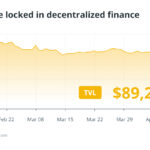In a world increasingly dominated by digital assistants, the question of ownership is more critical than ever. Millions rely on AI-powered tools embedded in their daily lives—whether through voice-controlled devices or sophisticated software like Google Workspace and ChatGPT. However, these essential systems are often likened to rented properties, where the true ownership and control lie with providers, not users. David Minarsch, a leading voice in the tech community, will delve into this pressing issue at Consensus 2025 in Toronto, shedding light on the implications of an AI landscape where users are merely consumers.
The reliance on these AI systems raises significant concerns about data privacy and control. Imagine if your digital assistant were to disappear overnight due to a sudden change in company policy, or worse, if it began to skew its responses based on the provider’s business motivations. Real-life scenarios such as the temporary ban on ChatGPT in Italy highlight the vulnerability of users in a marketplace dominated by powerful corporations. With sensitive personal data often uploaded unknowingly, there’s a growing need for transparency and user autonomy in how AI operates.
“Ownership isn’t just optional; it’s essential,” Minarsch emphasizes, pointing out the high stakes involved as AI becomes interwoven with critical aspects of our lives.
The traditional model of subscription-based or pay-per-use AI sharply contrasts with the emerging call for user-owned AI—particularly in the realms of Web3 and neobanking. Consider the revolutionary concept brought forth by Olas with its Pearl app, which allows users to run autonomous AI agents that retain ownership and privacy while managing various tasks. Unlike conventional AI platforms that keep users in a perpetual state of dependence, Pearl provides functionality with full control, enabling autonomy in managing financial portfolios and beyond.
With such innovations, the future of AI isn’t just about convenience; it’s about empowering users to reclaim their agency. The shift towards user-owned AI could prevent the concentration of power in the hands of a few dominant players and pave the way for a more equitable digital future. The demand for transparency is more than just practical; it’s pivotal to protect privacy in a society that thrives on data.
As we stand on the brink of this transformation, it becomes crucial to ask ourselves: Do we want to continue renting intelligence, or is it time to take ownership of the AI that shapes our lives? With the right tools, knowledge, and community focus, we can unlock a future where personal agency and digital intelligence go hand in hand.

Who Truly Controls Your AI Assistant?
Understanding the ownership and control of AI assistants can significantly impact your personal and professional life. Here are the key points to consider:
- Dependency on Rented Intelligence:
- Many users rely on rented AI assistants for writing, organizing, and decision-making.
- This dependency means businesses and individuals may face disruptions if services change or are discontinued.
- The Illusion of Control:
- Users pay for access but often have no true ownership over their AI models.
- Service providers control features, capabilities, and user data outcomes.
- Privacy and Data Risks:
- When using rented AI, sensitive data is often uploaded, increasing privacy concerns.
- Data can be logged, used for retraining, or even monetized without user consent.
- The Importance of Ownership:
- True ownership allows control over an agent’s decision-making and functionalities.
- Users can operate, customize, and modify their agents without reliance on external providers.
- Future of AI: Open-source vs. Closed Models:
- Open-source AI models are auditable and secure, while closed models create dependencies and black-box issues.
- User-owned AI promotes independence and security in a rapidly evolving tech landscape.
- Embracing Agency:
- Transitioning towards user-owned AI empowers individuals and decentralizes power.
- Failing to embrace this shift may reinforce existing monopolies in technology.
“User-owned AI isn’t just the better option. It’s the only one that respects the intelligence of the person using it.”
Rethinking Control in the AI Era: Ownership vs. Rental Models
The discussion around who truly controls AI assistants takes on new urgency as digital dependency increases. In contrast to the prevalent rental models employed by giants like Google and OpenAI, Olas proposes a paradigm shift toward ownership of AI agents. While traditional platforms provide convenience and integration into daily tasks, they also come with significant limitations that could create problems for users.
Competitive Advantages of the Ownership Model
Owning your AI agent through platforms like Olas’ Pearl offers distinct advantages. Users maintain full control over their data, ensuring privacy and the ability to customize their experience without being subject to the fluctuating terms of service typical of rental agreements. Unlike services where functionality can be altered by the provider’s business interests, an owned AI operates based on user-defined parameters. This not only builds trust but also fosters a sense of security and autonomy, particularly for sensitive tasks like managing finances or personal information.
Furthermore, the appeal of an app store for AI agents highlights the flexibility of ownership. Users can select specialized agents tailor-made for specific functions—whether that’s portfolio management or automated home control—without the ongoing dependence on a vendor’s capabilities. This level of customization can significantly enhance productivity and user satisfaction.
Disadvantages of Existing Rental Models
The sudden regulatory actions, like the temporary ban of ChatGPT in Italy, create immediate turbulence for users reliant on rented AI systems. This disruption serves as a stark reminder of the instability inherent in these models, raising security and privacy concerns that can impact personal and business operations alike.
Who Stands to Benefit, and Who Faces Challenges?

















